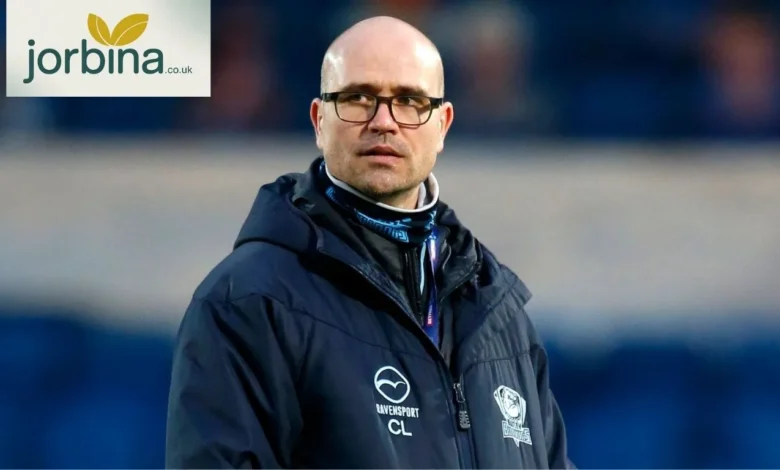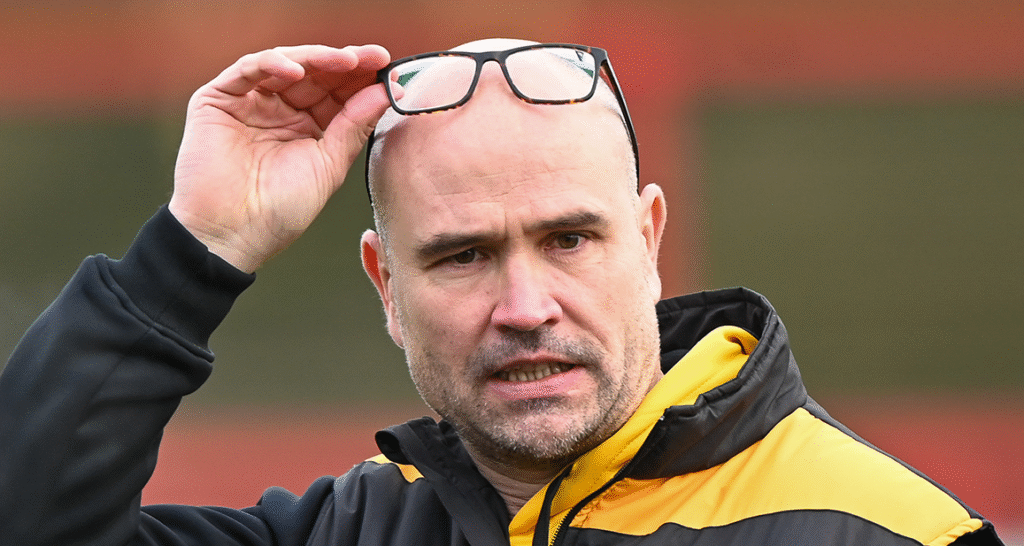
What turns a good coach into a great one? Is it the tactics, the trophies, or the way a leader makes people believe in something bigger than themselves? In rugby league, few names capture that balance like Craig Lingard. His path hasn’t been glamorous, but it’s been honest, and that’s exactly what makes his story so compelling.
This isn’t just about wins and losses. It’s about how a man from a small club built a reputation on integrity, resilience, and vision. Let’s walk through the journey that turned Craig Lingard from a hard-working player into one of rugby league’s most respected coaches.
From Local Fields to a Lifelong Calling
Craig Lingard’s relationship with rugby league began the way it does for many kids, on muddy community pitches, chasing a ball with pure joy. He grew up loving the sport for its energy and togetherness, not the spotlight. That early connection to the game’s grassroots stayed with him through every stage of his career.
He eventually found his home at Batley Bulldogs, a club known for its grit and determination rather than its budget. Lingard wasn’t the flashiest player, but he was reliable, clever, and relentless. He played with heart, which would later become the cornerstone of his coaching identity.
Those years at Batley shaped him. They taught him how much teamwork matters, how fragile confidence can be, and how leaders are defined not by volume but by consistency. Even then, people noticed his ability to read the game and motivate those around him. Coaching, though still years away, was already calling.
The Transition from Player to Coach
When Craig Lingard finally stepped off the field as a player, he didn’t wander far. He moved straight into coaching, driven by a desire to keep improving the sport he loved. It wasn’t an overnight success story; he started small, taking on roles where he could learn the craft from the inside out.
Early coaching jobs demanded patience. There were long days, tough defeats, and plenty of self-reflection. But Lingard thrived on that challenge. He learned how to turn setbacks into lessons and pressure into focus. Instead of trying to sound like other coaches, he built his own voice, calm, precise, and real.
That grounded approach began to catch attention. People saw how players responded to him, not out of fear, but respect. He had a gift for listening, for finding the one thing that would unlock someone’s confidence. It was clear: this wasn’t just a former player experimenting with coaching. This was a leader in the making.
Returning to Batley as a New Kind of Leader
Life has a funny way of bringing people full circle. Craig Lingard returned to Batley Bulldogs, not as a player this time, but as the head coach. The club where he once fought for every inch on the field was now his responsibility to guide.
Batley wasn’t a powerhouse team with star names or deep pockets. But that didn’t bother Lingard. He focused on building a strong culture before chasing results. He emphasized trust, preparation, and belief, values he had lived by as a player.
Under his leadership, Batley evolved into one of the most disciplined, competitive teams in the league. They played with unity, purpose, and the kind of quiet confidence that comes from knowing exactly who you are. That wasn’t a coincidence; it was Lingard’s influence at work.
He created an environment where players felt valued and motivated. Training sessions were intense but purposeful. Mistakes weren’t punished; they were dissected and understood. It wasn’t long before Batley started outperforming expectations. The rugby world took notice.
Earning a Reputation for Authentic Leadership
In professional sport, it’s easy to get caught up in appearances. But Craig Lingard’s leadership has always been built on authenticity. He doesn’t pretend to have all the answers, and that honesty earns him loyalty.
He’s known for being approachable, yet demanding when it counts. Players often describe him as the kind of coach who tells you the truth, even when it’s tough to hear, but always in a way that pushes you to improve rather than shrink. That balance between empathy and expectation is rare.
Lingard’s interviews after matches reflect the same character. He never shifts blame or hides behind excuses. He owns outcomes, whether good or bad, and focuses on what comes next. Over time, that transparency built his reputation not just as a smart tactician, but as a leader whom people could genuinely trust.
The Challenge at Castleford Tigers
When Castleford Tigers came calling, it was the next big step. Moving into a top-tier role meant more scrutiny, higher pressure, and louder voices. But Craig Lingard wasn’t one to shy away from a challenge.
He arrived at Castleford ready to steady the ship and bring back belief. The team had been struggling, and morale was low. Lingard focused on rebuilding from the inside out. He emphasized fundamentals: effort, honesty, and accountability. The message was simple: success doesn’t come from shortcuts.
The road wasn’t easy. Results didn’t always reflect the work happening behind the scenes, and the critics were quick to jump in. Still, Lingard never lost his composure. He kept the team focused, encouraged patience, and reminded them that culture takes time to build.
And while his time at Castleford eventually came to an end in 2024, he left the club with his integrity intact. There were no bitter press statements, no drama. He walked away the same way he led, gracious, steady, and ready for the next opportunity.
Did the Castleford Tigers Sack Head Coach Craig Lingard?

Yes, Craig Lingard’s departure from Castleford came after a difficult run of games. The club decided to move in a new direction, as happens so often in sports. But the story wasn’t one of failure; it was part of the natural rhythm of a coaching career.
Lingard’s reaction said everything about him. No defensiveness, no finger-pointing. He thanked the club, the players, and the fans, then moved forward. That’s the mark of a professional who understands that leadership isn’t about clinging to titles, it’s about how you handle transitions.
A Fresh Start with Sheffield Eagles
Every ending opens a door, and for Lingard, that door led to the Sheffield Eagles. It felt like the perfect fit, a club with history, ambition, and room to grow. The Eagles were eager for a coach who could reignite their potential, and they found that in him.
From his first few weeks, you could see the shift. Training had purpose again. Players were sharper, more focused, and visibly buying into his philosophy. He brought the same principles that worked at Batley: hard work, clarity, and togetherness.
Sheffield fans quickly embraced him. They recognized his sincerity and the way he respected both the game and the community. You could feel that connection strengthening with every match. For a club looking to re-establish itself, Craig Lingard’s arrival felt like a turning point.
Who Is the Coach of the Sheffield Eagles?
If you’re wondering who currently leads the Sheffield Eagles, the answer is simple: Craig Lingard. His presence has already made an impact, both in performance and attitude. Players describe him as approachable yet firm, a leader who expects effort but never forgets the human side of the sport.
That’s what makes him so effective. He’s not just teaching tactics; he’s shaping mindsets. His players know he believes in them, and that belief shows up in how they play.
Who Is the Guy with the Eagles Coach?
In photos and match footage, you might notice someone regularly alongside Lingard, often a member of his coaching or performance staff. He believes in collaboration, surrounding himself with people who challenge him and bring new ideas. He doesn’t want yes-men; he wants thinkers.
That attitude keeps his teams fresh and adaptable. Everyone has a voice, from analysts to assistant coaches. It’s a collective effort, not a one-man show, which perfectly reflects Lingard’s style.
Do Sheffield Eagles Have Any Rivalries?
Absolutely. Rivalries add flavor to the sport, and Sheffield has some notable ones. The biggest is with Doncaster, a fixture that’s always intense and emotionally charged. There’s also competition with clubs like York and Halifax, where pride is on the line as much as points.
Lingard uses these rivalries to fuel motivation without letting emotion derail focus. He tells his players to channel that energy into performance rather than distraction. It’s a clever balance that keeps his teams fired up but composed.
Did They Sack the Manchester United Coach?
This question sometimes pops up in sports discussions because of the constant churn in coaching news. But for clarity, Manchester United’s managerial changes are in football, not rugby league. The two worlds occasionally overlap in conversation, but they’re separate stories.
What’s interesting, though, is how fans compare coaching philosophies across sports. Many football managers could learn something from Craig Lingard’s steadiness and culture-first approach. His belief that success starts with trust applies anywhere, not just on a rugby pitch.
The Leadership Blueprint: What Craig Lingard Stands For

Ask anyone who’s played under Lingard what defines him, and you’ll hear the same themes: discipline, communication, and empathy. He expects commitment, but he never asks for more than he gives himself.
He’s not a shouter or a showman. His influence comes from presence, not volume. When he speaks, people listen because they know it comes from thought, not ego. That’s what leadership looks like: earned respect, not demanded obedience.
He also adapts. His coaching philosophy isn’t fixed; it evolves with each team and season. He studies, listens, and adjusts. That willingness to grow keeps him relevant in a sport that’s constantly changing.
The Power of Humility and Connection
What really sets Craig Lingard apart is humility. He hasn’t forgotten where he came from or what the game gave him. He still talks to fans, respects opponents, and values every person in his team setup, from star players to staff behind the scenes.
He’s proof that leadership doesn’t need to be loud or flashy. It can be steady, thoughtful, and real. His authenticity builds trust, and trust builds teams. It’s that simple—and that rare.
Looking Ahead: The Future of Craig Lingard
No one can predict exactly where Lingard’s journey will go next. Maybe he’ll lead Sheffield to new heights. Maybe one day he’ll take on another big Super League role. Whatever happens, one thing is certain: he’ll keep leading with the same integrity that’s defined him from the start.
His career shows that leadership isn’t about constant success. It’s about consistency through the highs and lows, and the courage to keep evolving.
FAQs
Did the Castleford Tigers sack head coach Craig Lingard?
Yes. He left the club in 2024 after a difficult spell, with both sides parting professionally.
Who is the coach of the Sheffield Eagles?
Craig Lingard currently leads the Sheffield Eagles, focusing on growth and team unity.
Who is the guy with the Eagles coach?
Usually one of his assistants or analysts, Lingard values teamwork among staff as much as players.
Do Sheffield Eagles have any rivalries?
Yes. Their biggest rivalry is with Doncaster, alongside spirited contests with York and Halifax.
Did they sack the Manchester United coach?
That’s related to football, not rugby league. The two coaching changes are unrelated.
Final Thoughts
Craig Lingard’s story isn’t about headlines; it’s about heart. He represents a kind of leadership built on patience, honesty, and consistency. From Batley to Castleford to Sheffield, his journey proves that true influence doesn’t come from noise or notoriety. It comes from showing up, doing the work, and inspiring others to do the same.
That’s what makes Craig Lingard a standout leader.



